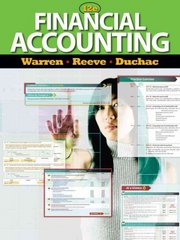Question
The principle of Due Care in the American Institute of Certified Public Accountants (AICPA) code of professional conduct refers to the expectation that auditing professionals
The principle of "Due Care" in the American Institute of Certified Public Accountants (AICPA) code of professional conduct refers to the expectation that auditing professionals conduct their work with competence and diligence, ensuring they adhere to established technical and ethical standards. This principle emphasizes the importance of continual improvement, learning, and the application of professional knowledge in delivering high-quality services. In simpler terms, "Due Care" means that accountants carry out their responsibilities diligently, with aptitude and precision, consistently safeguarding the public interest. Value to Practitioners, Businesses, and Clients: The principle of Due Care holds significant value across several dimensions: 1. Practitioners: It underscores a commitment to excellence, guiding accountants to continuously update their skills and knowledge. This focus on lifelong learning ensures practitioners stay abreast of evolving standards, methodologies, and regulations, which is crucial in maintaining professional relevance and proficiency. 2. Businesses: For organizations, adherence to Due Care ensures credibility and reliability in financial reporting and auditing processes. Accurate and thorough financial records are fundamental for sound decision-making, risk management, and strategic planning. 3. Clients: Clients gain assurance that their financial matters are being managed with the highest degree of professional integrity and competence. They can trust that their financial statements and tax filings are accurate, thereby reducing the risk of legal repercussions or financial misstatements. Example of a Difficult Situation and Ethical Response: One challenging scenario involving the principle of Due Care could occur during an audit of a long-standing client who has historically been known for their integrity and accountability. Suppose during an audit, a practitioner discovers potentially misleading financial information that the client's management is unaware of. An ethical response would dictate that the auditor thoroughly investigates the discrepancy, despite their relationship with the client. Consequently, they should report their findings transparently to the client's management and possibly recommend corrective actions or adjustments. The auditor would follow all applicable auditing standards rigorously, documenting their process meticulously to ensure that the due diligence is demonstrably evident. Temptations and Accidental Missteps: Practitioners might be tempted to overlook discrepancies due to the fear of damaging a longstanding client relationship or losing the client's business. The dependence on client fees can create a conflict of interest, leading some to potentially compromise the rigorous application of Due Care principles. Additionally, the quest to meet tight deadlines or budget constraints might inadvertently cause practitioners to cut corners or ignore certain red flags, leading to a failure to exercise Due Care. In summary, practicing Due Care is about upholding a commitment to competence and diligence, which benefits practitioners by bolstering their professional standing, aids businesses through reliable financial reporting, and reassures clients of the integrity and accuracy of their accounts. Despite pressures, the ethical course remains centered on thoroughness, transparency, and continual professional development.
QUESTIONS
What actions or strategies could be taken to remediate the ethical issues?
What are some repercussions of not abiding the selected principle from a legal, business, or general professional perspective?
Step by Step Solution
There are 3 Steps involved in it
Step: 1

Get Instant Access to Expert-Tailored Solutions
See step-by-step solutions with expert insights and AI powered tools for academic success
Step: 2

Step: 3

Ace Your Homework with AI
Get the answers you need in no time with our AI-driven, step-by-step assistance
Get Started


